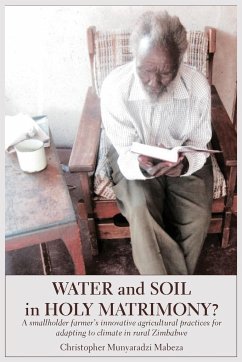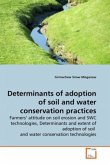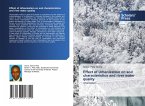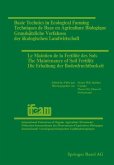This book is a biography based on a qualitative ethnographic study of adaptation to climate by Mr Zephaniah Phiri Maseko, an award-winning smallholder farmer from Zvishavane, rural Zimbabwe. Ethnographic data provides insight and lessons of Mr Phiri Maseko and other farmers' practices for rethinking existing strategies for adaptation to climate change. The concept of adaptation is probed in relationship to the closely related concepts of vulnerability, resilience and innovation. This study also explores the concept of conviviality and argues that Mr Phiri Maseko's adaptation to climate hinges on mediating barriers between local and exogenous knowledge systems. The book argues that Mr Phiri Maseko offered tangible adaptive climate strategies through his innovations that "marry water and soil so that it won't elope and run-off but raise a family" on his plot. His agricultural practices are anchored on the Shona concept of hurudza (an exceptionally productive farmer). This book explores the concept and practices of uhurudza, to suggest that the latter-day hurudza (commercial farmer) as embodied by Mr Phiri Maseko offers an important set of resources for the development of climate adaptation strategies in the region. This study of smallholder farmers' adoption of innovations to climate highlights the "complex interplay" of multiple factors that act as barriers to uptake. Such interplay of multiple stressors increases the vulnerability of smallholders. The study concludes by arguing that in as much as the skewed colonial land policy impoverished the smallholder farmers, Mr Phiri Maseko nonetheless redefined himself as a latter-day hurudza and thus breaks free from the poverty cycle by conjuring ingenious ways of reducing vulnerability to climate. The book does not suggest that Mr Phiri Maseko's innovations offer a silver bullet solution to the insecure rural livelihoods of smallholder farmers; nevertheless, they are a source of hope in an environment of uncertainty. His steely tenacity in the face of a multi-stressor environment is to be treasured.
Hinweis: Dieser Artikel kann nur an eine deutsche Lieferadresse ausgeliefert werden.
Hinweis: Dieser Artikel kann nur an eine deutsche Lieferadresse ausgeliefert werden.








